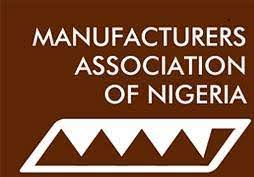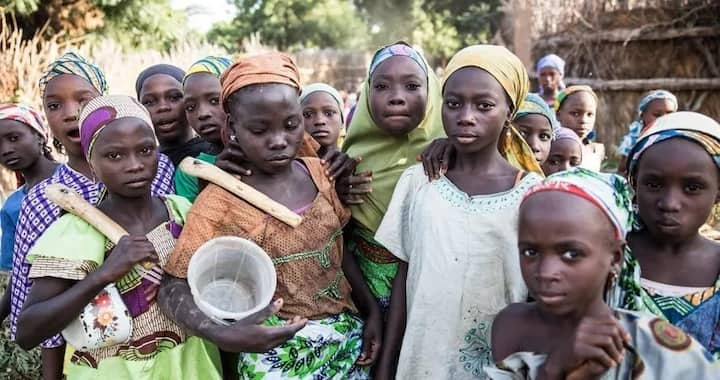The Manufacturers Association of Nigeria (MAN) has highlighted focal areas critical to addressing the manufacturing sector declining indicators in the country.
Mr Segun Ajayi-Kadir, MAN Director-General, said this in its second half news report in Lagos.
The document presents the summary of findings of the survey of the manufacturing sector for the second half of 2022.
The focus manufacturing indicators include capacity utilisation, production value, inventory, level of utilisation of local raw materials, investment, expenditure on alternative energy source, among others.
Ajayi-Kadir revealed that Nigeria’s manufacturing capacity utilisation in 2022 declined to 54.9 per cent from 59 per cent recorded in the corresponding half of 2021; indicating 4.1 per cent decline over the period.
He attributed the development to the adverse effect of high cost of energy, the Russia- Ukraine war, the grave effects of the Naira redesigning policy and other perennial macroeconomics challenges.
Ajayi-Kadir stated that manufacturing production value output declined to N2.68 trillion in the second half of 2022 from N3.73 trillion recorded in the corresponding half of 2021; indicating N1.05 trillion or 28 per cent decline over the period.
According to him, manufacturing production was severely affected in the second half of 2022 by absence of implementation of new capital project by the government as they focused on the election.
“Production in the sector was also negatively affected by limited purchases by households due to the Naira redesign policy, the high inflationary pressure in the country, high cost of energy and many more.
“Unfortunately, the issues of the basic metal group whereby duty of annealed cold roll was reduced to five per cent from the previous 45 per cent; the suspension of motorcycles in some areas across states, the increase in the duty of paper from five per cent to 20 per cent and so on are still effective.
“These challenges, in addition to the perennial issues, contribute enormously to the dip in the production of the sector in the period under review,” he said.
He, however, revealed that the sector’s local raw materials sourcing increased to 53.5 per cent in the second half of 2022 from 50 per cent recorded in the corresponding half of 2022; indicating 3.5 per cent increase over the period.
He said the increase in the local raw materials utilidation in the sector during the period was due to increased difficulty in sourcing foreign exchange which compelled manufacturers to look more inward for raw materials notwithstanding the associated huge cost.
Ajayi-Kadir urged government to re-evaluate its role in local development and production of raw materials in terms of funding.
“For instance, the development and production of Active Pharmaceutical Ingredients has been continuously eluded due to limited funding of the Raw Materials Research and Development Council.
“The absence of local production of APIs has been having dire consequences on the pharmaceutical production, particularly in the current situation of acute shortage of foreign exchange,” he said.
He revealed that the sector’s inventory of unsold finished products increased to N282.56 billion in the second half of 2022 up from N169.75 billion recorded in the corresponding half of 2021; indicating N112.81 billion or 66 per cent increase.
This development, he said, hinged on low purchasing power in the economy due to declining real income of household due to inflation, worsened by the Naira redesign policy.
Similarly, he stated, that manufacturing sector’s investment dipped to N145.59 billion in the second half of 2022 down from N160.88 billion recorded in the corresponding half of 2021; thus, indicating N15.29 billion or 10 per cent decline over the period.
He said that investment in the period was affected by the high debt profile of the Government which particularly deters foreign investment, high cost of borrowing, high cost of energy, low consumption during the period.
Ajayi-Kadir added that manufacturing employment and electricity supply to the sector also dipped in the period under review.
He said the cost of alternative energy sourcing increased to N76.7 billion in the second half of 2022 from N45.04 billion recorded in the corresponding half of 2021, an increase of N31.66 billion or 70 per cent increase.
“Consequently, it is critically important that the challenges identified by manufacturers in the course of the survey are adequately addressed by improving foreign exchange availability and prioritising interventions to support the raw materials and machine needs of the industries.
“Government must develop and implement a roadmap for improved power supply focusing on off-grid solutions and independent power projects by the private sector to ensure adequate supply of energy for production and also attract and expand investment.
“The country must also resuscitate domestic refining and commission the CHIYODA Group, the Japanese company that built the national refineries to rehabilitate them to resume domestic refining.
“Government is advised to continue to invest in infrastructure and set up a monitoring and evaluation platform with private sector representatives to oversee the disbursement of the various development funds meant for the industries,” he said.













